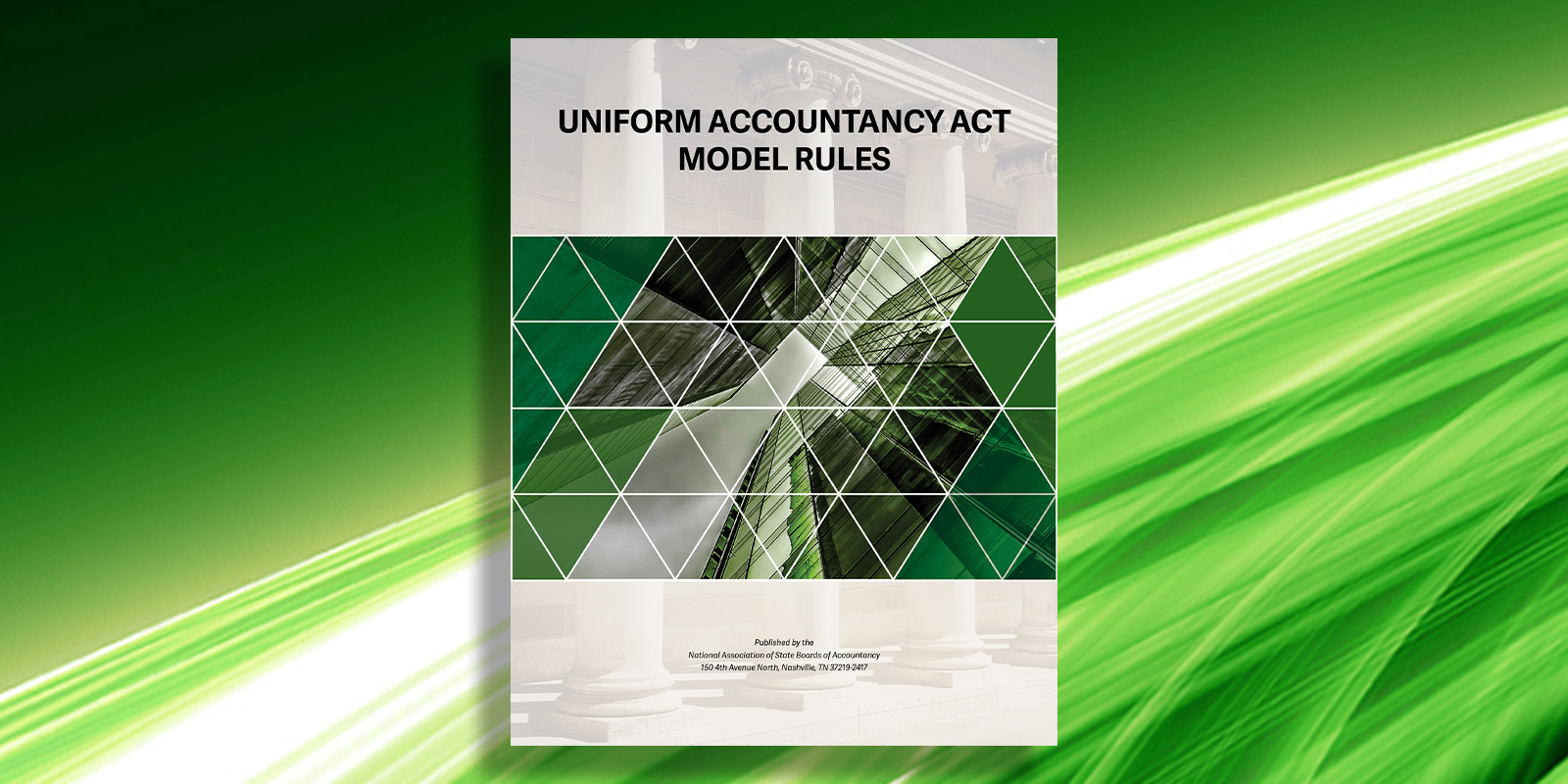|
SHARE: The Uniform Accountancy Act (UAA) Model Rules that will set the stage for the CPA Evolution are out for comment through August 31, 2020, announced UAA Committee Chair J. Coalter Baker (TX) at NASBA’s June Regional Meetings. The proposed changes to Model Rules 5-1 and 5-2 can be found on the NASBA website (https://nasba.org/app/uploads/2020/05/UAA-Cover-Letter-Proposed-Revisions_Final-26May20.pdf). They cover changes in school accreditation, required curriculum, internship parameters and acceptable course content. Comments should be sent to [email protected]. Mr. Baker underscored that the changes being proposed would have no impact on the Boards’ substantial equivalence. These changes were drafted based on the recommendations of the AICPA/NASBA leadership summit, with input from advisory task forces and the NASBA Education Committee. At the NASBA Board’s spring meeting (see Spring 2020 sbr), the NASBA Uniform Accountancy Act Committee recommended the proposed rules be distributed for comment, which was approved to follow the AICPA’s Council’s vote in support of the CPA Evolution initiative. During the June virtual Regional Meetings, questioners asked if the proposed rules would provide guidance on fulfilling the 150-hour requirement. Dan Dustin, Vice President – State Board Relations, responded that there would still be flexibility to enable the rules to stay relevant as the profession evolves. Another question was why “content” was replacing “courses” in several places in the proposed rule changes. Mr. Dustin explained, “The intent was to move to content, rather provide a menu of courses. ‘Content’ had been used in the 2008 Model Rules revision, and the aim is to now make the term’s use consistent throughout this revision.” Several questions were raised about adding the recognition of “international accreditation organizations.” Mr. Baker explained, “Accrediting bodies have changed.” The Association to Advance Collegiate Schools of Business (AACSB) is an international organization that accredits schools that graduate a large percentage of CPA candidates, and is no longer termed a “national” organization. He pointed out that proposed rules stipulate it is up to the Board to recognize the accreditation organizations. During Regional Breakout sessions on the following days, several Boards’ representatives questioned how the Boards are to determine which accreditation organizations qualify to be recognized. A suggestion that NASBA develop information on accreditation organizations and guidance on recognition was proposed and is to be considered by the NASBA Education Committee. Another question posed was: Could additional pre-approved internships blur the line between experience and education, and possibly permit the internship to be counted both as education and experience? Mr. Dustin reported that states currently have varying rules regarding internships and the Model Rules are intended to bring consistency among the states’ requirements. Most states’ rules currently make clear the difference between internships and experience, he noted. |

